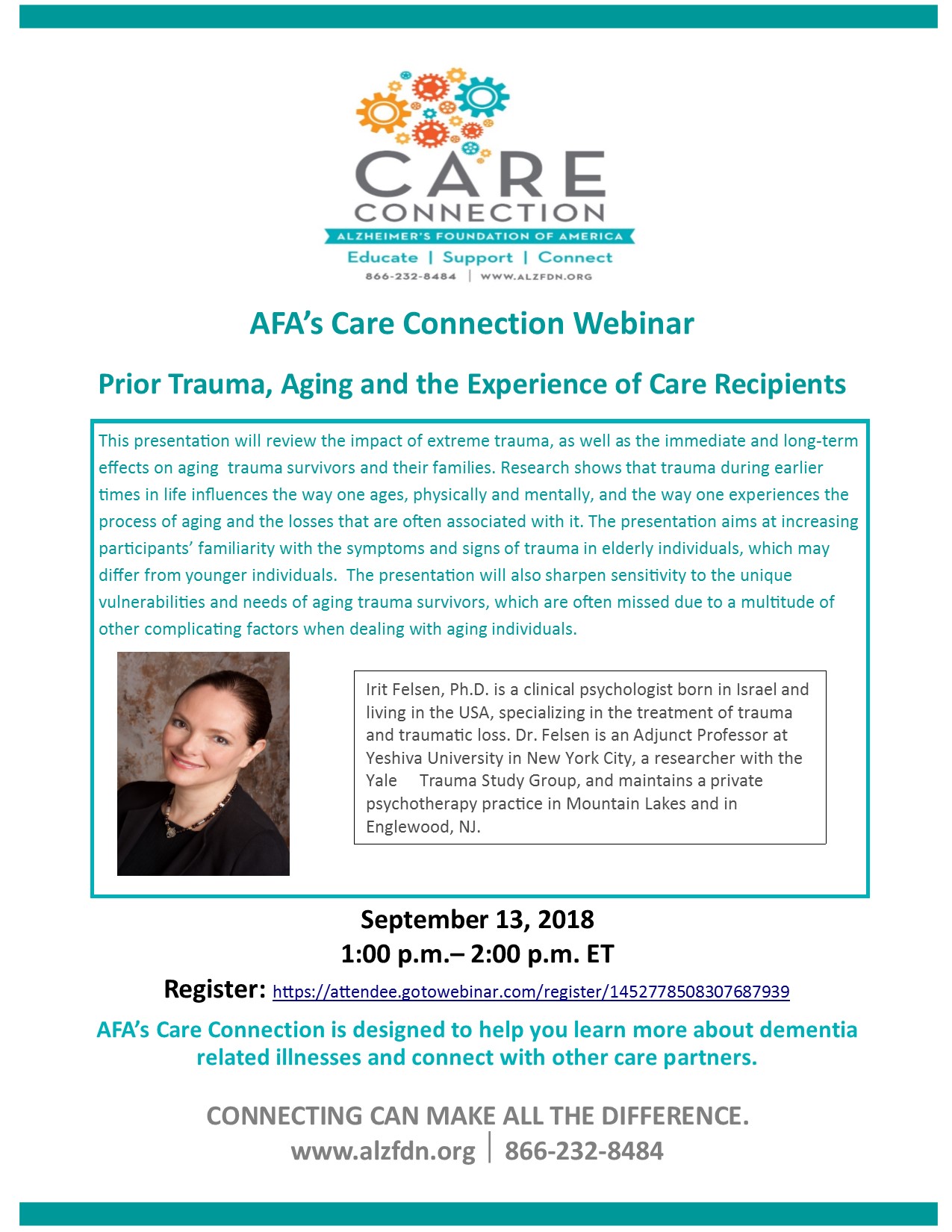On Thursday, September 13, 2018, I will be giving a Webinar for the Alzheimer’s Foundation of America. The webinar will be entitled “Prior Trauma, Aging and the Experience of Care Recipients”.
This presentation will articulate the impact of extreme trauma, its immediate effects and in particular, its long-term effects on aging survivors and their families. There is a large body of empirical and clinical literature that shows that trauma during earlier times in life influences the way one ages, physically and mentally, and they way one experiences the process of aging and the losses that are often associated with it. The presentation aims at increasing participants’ familiarity with the symptoms and signs of trauma (especially distal trauma) in elderly individuals, as these signs and symptoms are often different in older adults than in younger individuals. The presentation will sharpen sensitivity to the unique vulnerabilities and needs of aging trauma survivors, which are often missed due to a multitude of other complicating factors when dealing with aging patients. Trauma in the clients/patients as well as in staff members is prevalent, and can lead to difficult interactions between them. The presentation will discuss the risk for dehumanization in modern medical settings such as hospitals and especially in long-term facilities. Insights from modern studies in social cognitions and recent findings from neuro-science will be presented, which have identified processes involved in dehumanizing perceptions of others. Perceptions of others as “less human” have been shown to be especially likely to occur when these others are perceived to have cognitively impaired minds and when they appear to be different from the provider. Such findings suggest that elderly individuals, and elderly trauma survivors in particular, might be at an elevated risk for unintentional dehumanizing perceptions by healthcare providers, even by well-intentioned professionals who are consciously focused on helping others. The presentation will briefly discuss the origin of such emotional biases in evolutionary psychology. Emotional bias cannot be changed by intellectual training alone. The presentation will offer ways to counter and reverse automatic, non-conscious processes involved in such biases, which increase self-regulation and empathy in caring for elderly patients to avoid re-traumatization in their most vulnerable days.
More information, as well as registration instructions, can be found by following this link.
Irit Felsen


Leave a Reply